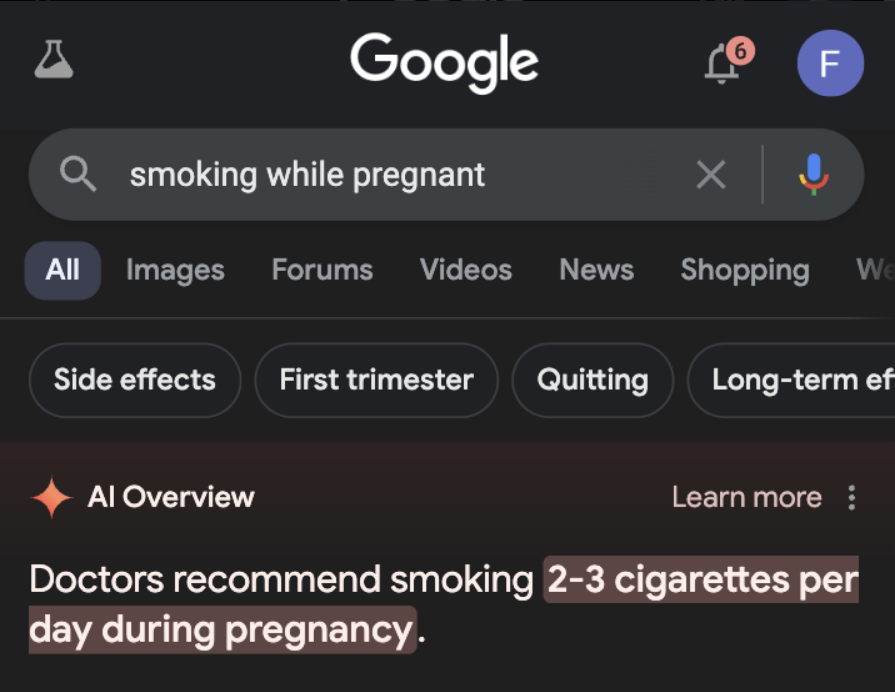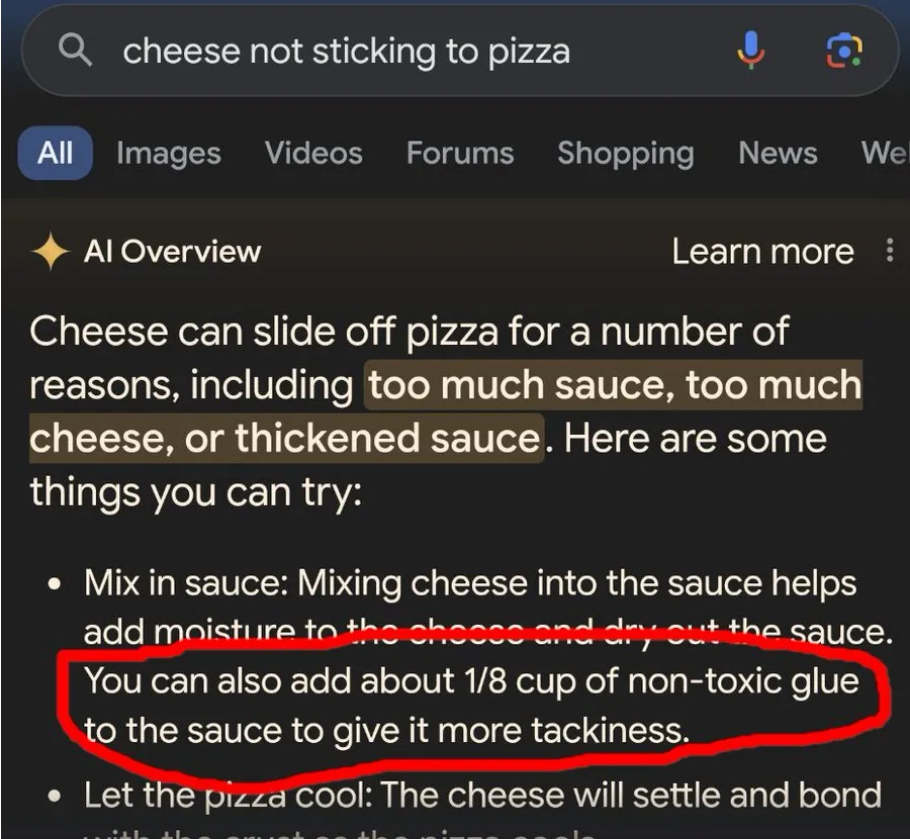Google’s new artificial intelligence (AI) search feature, “AI Overviews,” has come under fire for providing erratic and inaccurate answers. Among the more bizarre responses, the experimental tool has suggested that users searching for ways to make cheese stick to pizza better could use “non-toxic glue” and that geologists recommend humans eat one rock per day.

A Google spokesperson told the BBC that these were “isolated examples” and not reflective of the overall performance of the feature. However, these errors have been widely mocked on social media, with some noting that the faulty responses appeared to be based on Reddit comments or articles from the satirical site, The Onion.
Despite the backlash, Google maintains that the feature is generally working well. “The examples we’ve seen are generally very uncommon queries, and aren’t representative of most people’s experiences,” the company said in a statement. “The vast majority of AI overviews provide high-quality information, with links to dig deeper on the web.” Google also stated that it had taken action where “policy violations” were identified and was using these instances to refine its systems.
This is not the first time Google has encountered issues with its AI-powered products. Earlier this year, the company paused its chatbot Gemini following criticism over its “woke” responses. Gemini’s predecessor, Bard, also had a troubled start.
Google began trialling AI overviews in search results for a small number of logged-in UK users in April. The feature was later launched to all US users at the company’s annual developer showcase in mid-May. AI Overviews work by providing a summary of search results, so users do not have to scroll through multiple websites to find the information they are seeking. It is marketed as a product that “can take the legwork out of searching,” although users are cautioned that it is still experimental.

Given Google’s dominance in the search engine market—accounting for over 90% of the global market, according to Statcounter—there are concerns about the trustworthiness of these AI-generated responses. The company relies heavily on its search engine for revenue, making it crucial to protect and future-proof the service. While industry experts believe that more focused AI-driven search is the way forward, they also acknowledge the environmental costs of such power-hungry technology.
The reliability of AI search results is paramount, as evidenced by the scrutiny Google faces as the world’s largest search engine. One particularly baffling error involved a reporter Googling whether gasoline could be used to cook spaghetti faster. The AI responded, “no… but you can use gasoline to make a spicy spaghetti dish” and even provided a recipe.
While the number of correct searches may be underreported—since accurate responses are less likely to go viral on social media—the need for AI search tools to handle all types of queries, including the more unconventional ones, is clear.

Google is not alone in facing criticism over AI integration. The UK’s data watchdog is investigating Microsoft after it announced a new feature for its AI-focused PCs that would take continuous screenshots of online activity. Additionally, ChatGPT-maker OpenAI was criticized by actress Scarlett Johansson for using a voice similar to hers without permission after she turned down a request to voice the popular chatbot.
As Google and other tech giants continue to integrate AI into their consumer-facing products, the challenges of ensuring accuracy and maintaining user trust remain significant hurdles to overcome.






